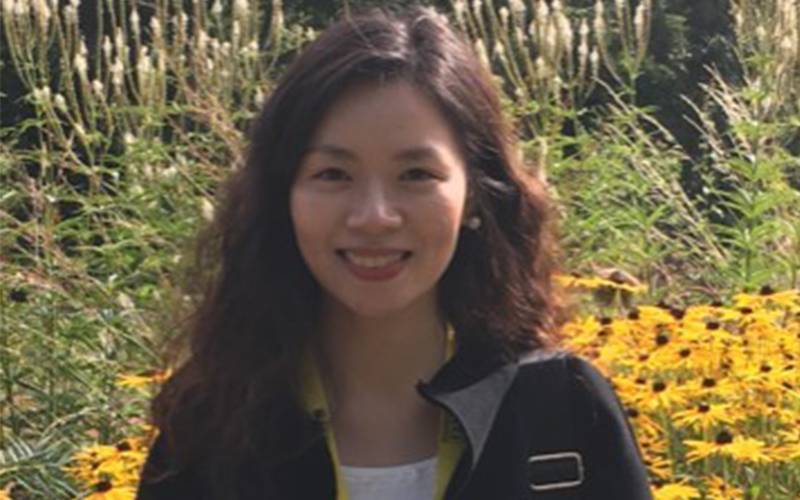This month we speak to Dr Karen Mak to find out more about her research into how the arts, and social and cultural community engagement can improve the health of the public.

What is your role and what does it involve?
I am a Senior Research Fellow in Epidemiology & Statistics at UCL working with the Social Biobehavioural Research Group in the Department of Behavioural Science and Health. My roles involve leading research into understanding the rate, patterns, predictors and impacts of arts, social and cultural community engagement in the UK and internationally using population-based studies including the British birth cohort studies. I co-lead the BSc Population Health Dissertation and supervise undergraduate and postgraduate students on topics relating to arts and health. I also co-lead the UCL Health of the Public Creative Health Community, which provides a platform for UCL researchers to share ideas, experiences and expertise on reducing health disparities through creative assets and approaches.
How are you improving the health of the public?
Arts and cultural engagement play a vital role in supporting our health and wellbeing, through preventing illnesses and through treating and managing health conditions. My research explores how such engagement is associated with improvements in wellbeing longitudinally. This enables us to understand how long the benefits from the arts could last, as well as to examine the underlying mechanisms/processes that connect engagement to positive outcomes. This research can benefit the healthcare sector by providing evidence to inform community health interventions such as social prescribing schemes which connect individuals with poorer wellbeing to arts and cultural community activities through referrals.
My research also involves identifying modifiable enablers to boost people’s engagement in the activities using the COM-B behavioural change model, which suggests that engagement can be enhanced through upskilling people’s artistic abilities, skills and knowledge, offering social and physical opportunities, and providing motivations and incentives to engage. These findings are valuable especially for policy development, by exploring changeable factors that can help promote equitable arts and cultural engagement across different population groups. The research will also help increase awareness of cultural and community organisations of the inequalities in participation and provide insight into how activities and programmes can be developed to be more inclusive so that more people can engage and enjoy.
I also expand my research on an international scale, where I lead cross-country comparison studies through my affiliation with the WHO Collaborating Centre for Arts and Health to understand how UK cultural engagement rate compares to other countries and to explore potential high-level mechanisms to understand what works in other countries that may also work in the UK context. All of these provide fresh and worldwide perspectives into developing national place-based policies and programmes, improving people’s day-to-day engagement with the arts and subsequently their health and wellbeing.
What do you find most interesting or enjoyable about your work?
I enjoy analysing data from the birth cohort studies, where I have the opportunity to study cohort members’ past and improve their future. I love collaborating with and learning from talented and passionate researchers. I enjoy sharing my research findings with cross-sectoral audiences from policy, community and health, supporting their practice while listening to their views.
How have cross-disciplinary collaborations shaped your work?
My work has been shaped by cross-disciplinary collaborations. I have worked with international scholars to understand how the UK arts and cultural engagement rate compares to other countries and the potential country-level predictors that may contribute to the differential rate. I have collaborated with a policy adviser from Historic England to understand the association between the historic built environment and social capital. I have worked with a cross-sectoral advisory board with stakeholders across policy and community organisations to develop a research grant. I have also worked with sociologists, gerontologists, statisticians, social psychologists and geographers to understand the predictors and impacts of arts and cultural community engagement across different population groups.
What advice would you offer to others interested in developing cross-disciplinary work?
My research team and I have written a blog on the 10 tips on collaborative research with community partners (which can also apply to other sectors). Here are the tips provided in the blog:
- Start engaging early
- Make organisations research partners
- Avoid assumptions
- Be open to different ways of working
- Approach as equals
- Be aware of the influence of your research
- Share what you know
- Be honest and transparent (super important!)
- Communicate
- Don’t avoid the difficult conversations
What's next on the research horizon for you?
- To continue expanding my cross-country research through collaborations with international scholars to explore and compare the rates, predictors and impacts of arts and cultural engagement globally
- To understand the ‘active ingredients’ (components that make up an activity) and the underlying mechanisms and processes that connect the engagement to health and wellbeing improvements
- To fully understand how people’s arts and cultural engagement can be enhanced through capabilities, opportunities and motivations (borrowing from the COM-B behavioural change framework)
If you could make one change in the world today, what would it be?
To provide more diverse in-school extra-curricular activities (e.g., arts, music, heritage, sport, dance, voluntary work, book clubs, and social and youth clubs) for children and young people to connect, interact, learn and flourish together.
 Close
Close

